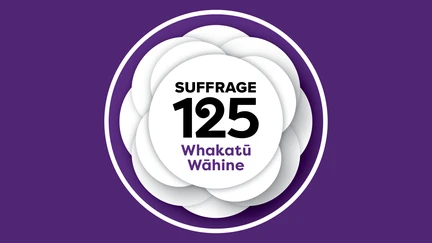Suffrage and the White Camellia
Suffrage Day is a special day in New Zealand’s history. Sunday 19 September 2021 is Suffrage Day / White Camellia Day.

Why is Suffrage Day celebrated?
On the 19th of September 1893, New Zealand became the first nation in the world to grant women the right to vote. This year marks the 126th anniversary of women winning the right to vote in New Zealand. The white camellia was the symbol of the suffragists.
Did you know? November 28th 1893 was the day New Zealand women voted for first time.
What is Suffrage Day?
Suffrage Day provides an opportunity for people to celebrate New Zealand’s suffrage achievements and look for ways to benefit women.
How do we commemorate this day?
- Wearing a white camellia. Why? These flowers were worn by people supporting women’s right to vote in New Zealand.
- Wear a Suffrage 125 symbol. Why? The symbol draws on historical colours and icons adopted by women’s suffrage petitioners and presents them in a contemporary form.

Image courtesy of Manatū Wāhine | Ministry for Women.
Where can I find information about the suffragettes and and Suffrage Day?
- ManyAnswers has a page dedicated to websites, resources and ways to search for information about the suffragettes and Suffrage Day.
- NZ History has some amazing pages dedicated to women’s suffrage day and Suffrage 125.
- See who signed the 1893 Women’s Suffrage Petition
- See images on Digital NZ of Cartooning the women’s vote.
- Also check out these amazing books!
- Hindsight : pivotal moments in New Zealand history / Hager, Mandy
- The book of gutsy women : favourite stories of courage and resilience / Clinton, Hillary Rodham
- Suffragettes : the fight for votes for women
- Hidden heroines : the forgotten suffragettes / Andrews, Maggie
- Rise up, women! : the remarkable lives of the suffragettes / Atkinson, Diane (eaudiobook)
- Tiny statements : a social history of Aotearoa New Zealand in badges / Gibson, Stephanie
- A history of New Zealand in 100 objects / Phillips, Jock (eaudiobook, ebook)
- Introducing The Women's Suffrage Petition
- The Women's Suffrage Petition = Te Petihana Whakamana Pōti Wahine, 1893 (read online through Bridget Williams Books)
Click here for more books about suffragettes.